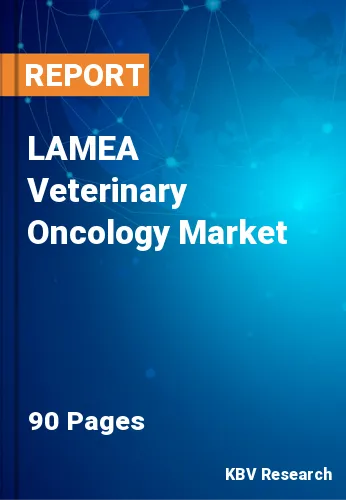The Latin America, Middle East and Africa Veterinary oncology Market would witness market growth of 14.2% CAGR during the forecast period (2020-2026). Veterinary radiation oncology continues to advance with the introduction of emerging technology, procedures, and guidelines while growing patient outcome knowledge. They do face gaps in expertise and require randomized clinical trials to evaluate true results for clinicians, prognostic factors, dose tolerances, and toxicity.
In animals, lymphoma (lymphosarcoma) is a type of cancer characterized by the proliferation of malignant lymphocytes in solid organs such as the lymph nodes, bone marrow, liver, and spleen. The disorder can also occur in the gastrointestinal tract of the body, skin, and. Close supervision of dogs receiving chemotherapy is necessary because of the high risk of recurrence and resulting problems. The same refers to dogs who have reached remission and have ceased treatment. Disease and remission/recurrence control is normally done by peripheral lymph node palpation. This detects significant changes in peripheral lymph nodes. Some of the blood testing used to detect lymphoma often provide more objectivity and provide an early warning of an animal coming out of remission.
Wide resection is a type of curative-intent surgery: the aim is to resect the tumor burdens macroscopic (the primary tumor) and microscopic (satellite cells), including biopsy tracks. This surgical dosage is recommended for treating and handling solid tumors over intralesional and partial resections. Radical resection involves the replacement of a whole compartment of the tissue. Examples include removing a whole organ for the diagnosis of appendicular osteosarcomas, such as splenectomy to remove a splenic hemangiosarcoma or amputation of legs. Radical resection is sometimes required to completely remove the primary tumor and its accompanying pseudocapsule and satellite tumor cells, based on tumor location, type, and size.
Based on Animal Type, the market is segmented into Canine and Feline. Based on Therapy, the market is segmented into Chemotherapy, Radiology, Surgery, Immunotherapy and Others. Based on Cancer Type, the market is segmented into Lymphoma, Mast Cell Cancer, Mammary & Squamous Cell Cancer and Others. Based on countries, the market is segmented into Brazil, Argentina, UAE, Saudi Arabia, South Africa, Nigeria, and Rest of LAMEA.
Free Valuable Insights: Veterinary Oncology Market in LAMEA is expected to register a CAGR of 14.2% during the forecast period (2020-2026)
The market research report covers the analysis of key stake holders of the market. Key companies profiled in the report include Boehringer Ingelheim International GmbH, Karyopharm Therapeutics, Inc., Regeneus Ltd., Elanco Animal Health, Inc., Zoetis, Inc., Varian Medical Systems, Inc., PetCure Oncology, LLC (Accelitech, LLC), AB Science SA, Rhizen Pharmaceuticals S.A., and Nippon Zenyaku Kogyo Co., Ltd.
Market Segmentation:
By Animal Type
By Therapy
By Cancer Type
By Country
Companies Profiled
Our team of dedicated experts can provide you with attractive expansion opportunities for your business.

